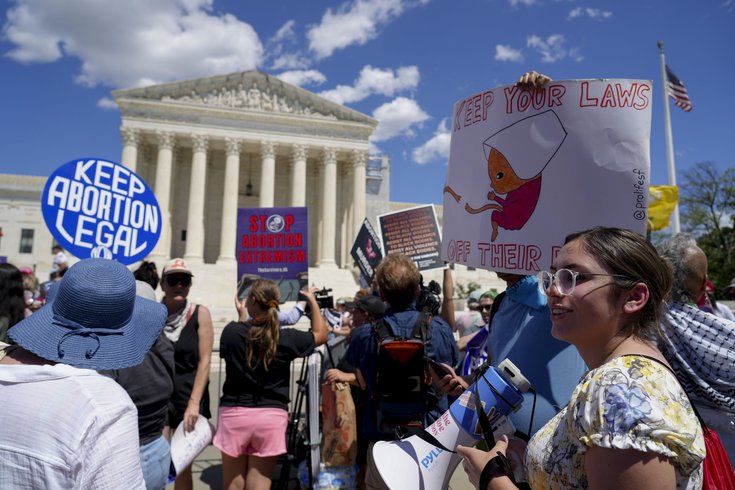
October 22, 2024
 Source/Image licensed from Ingram Image
Source/Image licensed from Ingram Image
Infant deaths caused by chromosomal and genetic abnormalities were 10% higher than expected during the 7-14 months after the U.S. Supreme Court eliminated federal abortion protection in its Dobbs v. Jackson Women's Health decision in June 2022. Above, activists on both sides of the issue demonstrate outside the U.S. Supreme Court on the second anniversary of the court's decision.
Infant deaths were higher than expected in the months after the U.S. Supreme Court overturned the federal abortion right established by Roe v. Wade – and they were particularly high among babies born with chromosomal and genetic abnormalities, a new study shows.
"Birth outcomes are usually pretty stable in any population, and in a large population like the entire U.S., infant mortality is typically quite consistent except for some predictable seasonal peaks and valleys," said Parvati Singh, one of the Ohio State University researchers behind the study published Monday in JAMA Pediatrics.
There were 247 more infant deaths per month than expected in the seven to 14 months following the Supreme Court’s 2022 Dobbs v. Jackson Women's Health decision, the study found. That was 7% higher than before Dobbs, which determined the U.S. Constitution does not protect the right to abortion and gave states the power to limit and outlaw abortion.
There were 204 more infant deaths per month due to chromosomal and genetic conditions after Dobbs, a 10% increase.
These findings were consistent with the increase in infant mortality in Texas after the state's 2021 abortion ban on embryos with a detectable heart rate, which develops around 5 weeks gestation. The Ohio State study also aligned with previous research concluding that infants born in states with stricter abortion laws are more likely to die before age 1. "Restricting care can result in widespread negative health effects," the researchers concluded.
"There's a broader human toll to consider, including mental health consequences of being denied abortion care or being forced to carry a fetus with a fatal genetic abnormality to term," Singh said.
The researchers used a national birth outcomes database to look for patterns in infant mortality from 2018 to 2023. They did not find higher rates of infant mortality beyond 14 months post-Dobbs. The study did not reflect variations in infant mortality from state to state.
Abortion is now illegal in 13 states, and 28 states, including Pennsylvania, have abortion bans based on length of pregnancy and other restrictions. Nine states, including New Jersey, protect the right to abortion throughout pregnancy.
Abortion is legal in Pennsylvania up until 23 weeks and six days of pregnancy. Pennsylvania also requires people to get counseling information from an abortion provider 24 hours before an abortion and requires authorization from a parent or legal guardian for people under 18 seeking an abortion.
New Jersey does not require parental involvement for people under 18 seeking an abortion.